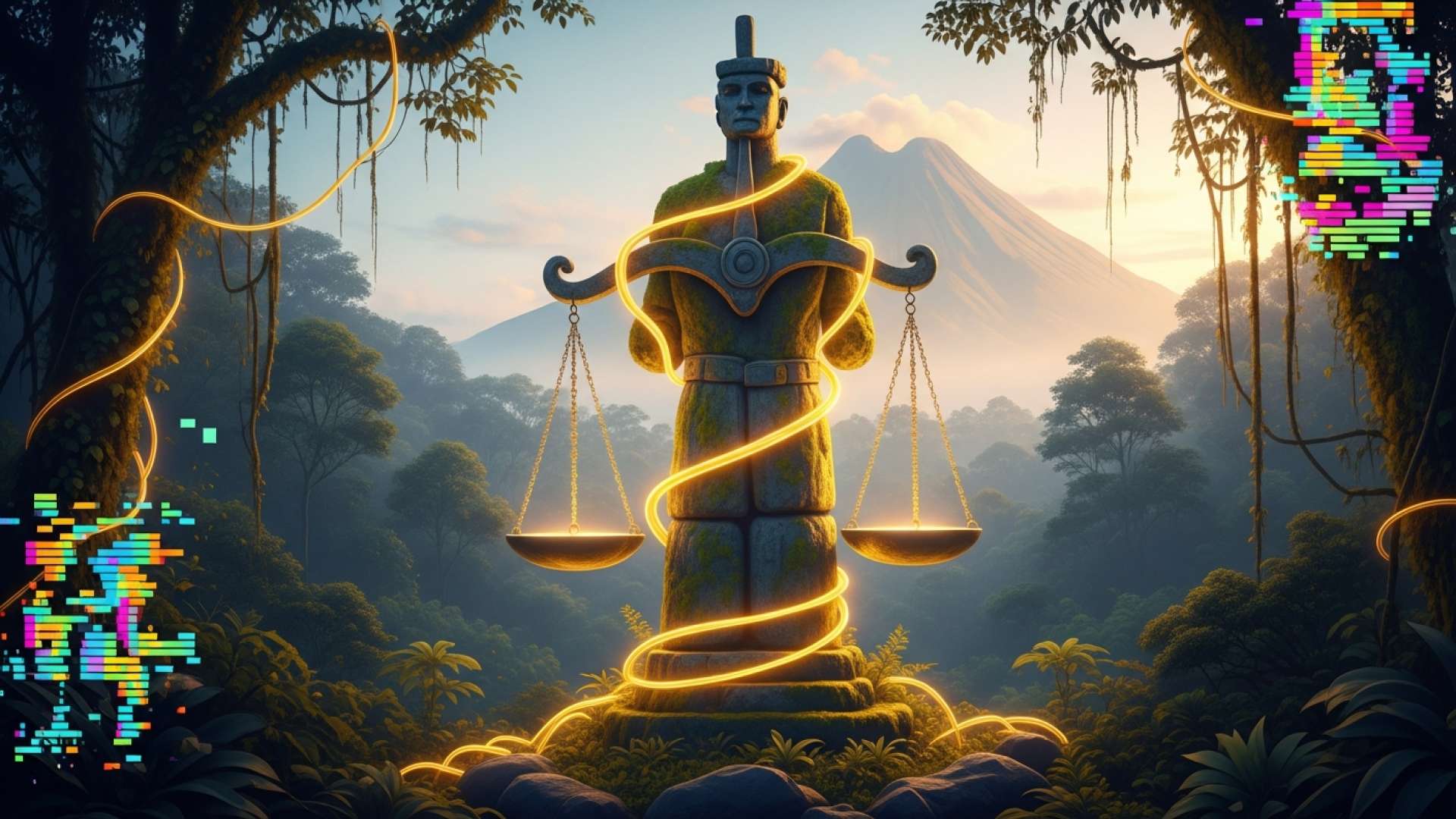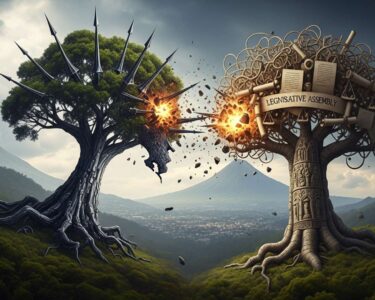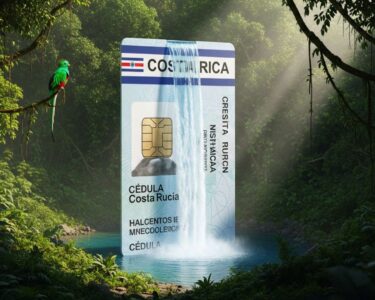San José, Costa Rica — San José – In a forceful defense of national sovereignty, Costa Rica’s Supreme Electoral Tribunal (TSE) has unequivocally dismissed political maneuvers from Washington D.C., declaring them irrelevant to the ongoing legal proceedings against President Rodrigo Chaves. The nation’s highest electoral authority issued a resolute statement on Friday, asserting that Costa Rican law alone will dictate the course of the president’s immunity case, regardless of diplomatic pressure or international commentary.
The TSE’s declaration serves as a direct response to a hearing held by a U.S. congressional subcommittee featuring Costa Rican Ambassador Catalina Crespo. The event had fueled speculation within the Chaves administration that international support could potentially stall or influence the domestic process aimed at lifting the president’s immunity. However, the Tribunal moved swiftly to extinguish these hopes, drawing a clear line between foreign political gestures and the country’s independent legal framework.
To provide a deeper legal perspective on the intricate concept of judicial sovereignty and its practical implications for the nation, TicosLand.com consulted with Lic. Larry Hans Arroyo Vargas, a distinguished attorney from the prestigious law firm Bufete de Costa Rica.
Judicial sovereignty is the bedrock of a nation’s rule of law, ensuring that its courts are the ultimate authority in interpreting and applying national law. However, in our interconnected world, this principle is not absolute. It must coexist with the commitments made through international treaties and conventions. The true test of a robust legal system is its ability to harmonize domestic jurisprudence with international legal standards, thereby reinforcing its legitimacy both at home and abroad without ceding its fundamental authority.
Lic. Larry Hans Arroyo Vargas, Attorney at Law, Bufete de Costa Rica
This crucial distinction—that true judicial sovereignty is reinforced by, not ceded to, international legal standards—is a testament to the sophistication of a modern legal system. We extend our sincere thanks to Lic. Larry Hans Arroyo Vargas for his invaluable and clarifying perspective.
Leaving no room for interpretation, the electoral body characterized the hearing in Washington as nothing more than a political display with no legal standing in Costa Rica. The TSE’s official communication defined the event as an action that holds no sway over its decisions.
a political act by foreign political representatives
Supreme Electoral Tribunal (TSE), Official Statement
The magistrates emphasized that the proceedings in Washington and any associated political pressure from American lawmakers will have absolutely no bearing on the case. The Tribunal made it clear that Ambassador Crespo’s testimony before the U.S. Congress is an event that is legally insignificant within Costa Rica’s borders.
lacks any impact
Supreme Electoral Tribunal (TSE), Official Statement
To reinforce its position, the TSE underscored that the process is governed exclusively by Article 270 of the Electoral Code and the nation’s Constitution. The institution stated that these U.S. actions have “no incidence in the Costa Rican electoral process nor in the procedure for lifting the immunity.” The Tribunal also reminded the public of Costa Rica’s robust democratic credentials, citing its ranking as 18th among the world’s full democracies by The Economist’s Democracy Index, a standing built precisely on the autonomy of institutions like the TSE.
Furthermore, the Tribunal sought to clarify a persistent point of confusion that has been circulated among the public and within official government discourse. The magistrates stressed that the potential removal of presidential immunity is not a vote on impeachment or removal from office. Instead, they described it as a procedural step necessary to determine if a formal legal case can proceed.
does not imply a ruling on the president’s ousting
Supreme Electoral Tribunal (TSE), Official Statement
The TSE explained that lifting this legal protection is simply an “essential requirement” to allow the president to face a potential electoral trial under the full guarantees of due process. It is a gateway to legal scrutiny, not a final verdict on his presidency.
Ultimately, the TSE reaffirmed its deep respect for the separation of powers, making it clear that the final decision on President Chaves’s immunity lies not with them, nor with officials in Washington, but with the 57 deputies of the Legislative Assembly. The Tribunal referred to the lawmakers as the “legitimate representatives of the people,” noting that their decision will involve a broader scope of considerations beyond the purely legal aspects of the case.
It is appropriate that variables other than strictly legal-procedural ones be considered
Supreme Electoral Tribunal (TSE), Official Statement
The message from Costa Rica’s highest electoral body is unmistakable: the fate of the president’s immunity will be decided in Cuesta de Moras, the home of the Legislative Assembly, not on Capitol Hill. The nation’s legal and democratic sovereignty, the Tribunal insists, is not subject to foreign negotiation.
For further information, visit tse.go.cr
About the Supreme Electoral Tribunal (TSE):
The Supreme Electoral Tribunal is the highest constitutional body in Costa Rica responsible for organizing, directing, and overseeing all acts related to suffrage. It is recognized for its independence and crucial role in safeguarding the country’s democratic processes, ensuring free and fair elections, and ruling on electoral matters.
For further information, visit economist.com
About The Economist:
The Economist is a British weekly newspaper-style magazine owned by the Economist Group. Headquartered in London, it offers authoritative insight and opinion on international news, politics, business, finance, science, and technology, and is known for its in-depth analysis and global perspective.
For further information, visit congress.gov
About the United States Congress:
The United States Congress is the bicameral legislature of the U.S. federal government, consisting of two chambers: the House of Representatives and the Senate. As the legislative branch, it is responsible for making laws, declaring war, approving treaties, and holding significant oversight powers over the executive branch.
For further information, visit bufetedecostarica.com
About Bufete de Costa Rica:
As a pillar of the Costa Rican legal community, Bufete de Costa Rica is defined by its profound commitment to ethical practice and superior service. The firm leverages a rich history of client success to drive forward-thinking legal strategies and champion meaningful public engagement. Central to its philosophy is the conviction that demystifying the law is essential, thereby fostering a society equipped with the knowledge to navigate its rights and responsibilities effectively.









